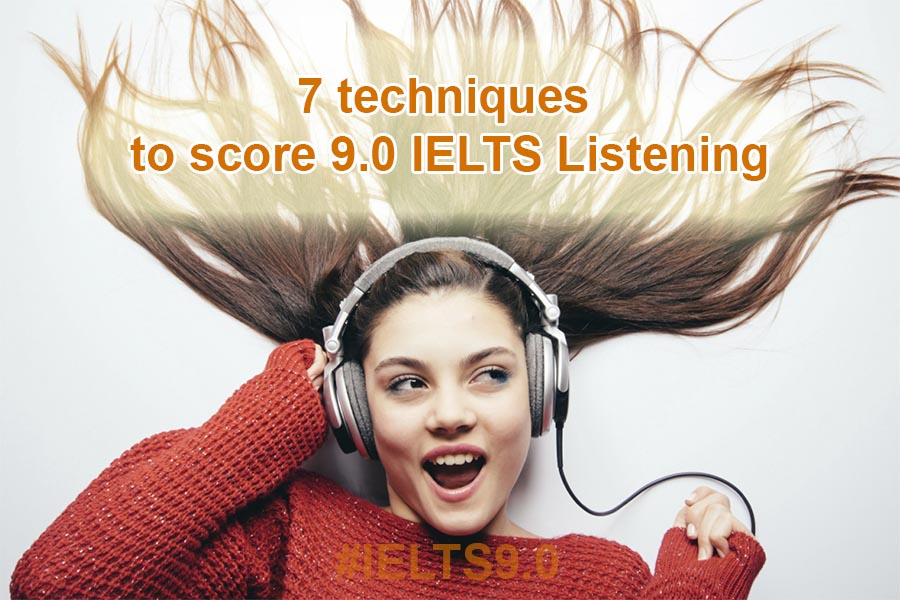7 techniques to score 9.0 IELTS Listening
In each section of the IELTS, you need to have smart tactics to score as high as possible. These are 7 techniques for IELTS Listening that will help you get perfect score in this section.

Write down the answer as you hear it
Listening is a very active portion of the IELTS, therefore tests taker have to quickly catch up with the pace of the test. It’s difficult to memorise the answer that you’ve heard, and it will quickly fade away as you continuously take in new information from the test.

That’s why you should write the answer down as soon as you heard it either in the draft or in the answer sheet. IELTS takers tend to worry that writing may disrupt the listening process.
In truth, this may happen, but if you practice writing and listening at the same time then there would be no trouble doing both.
Only focus on one group of questions at a time
IELTS Listening is divided into 4 Sections, with increasing difficulty. However, you may not notice that Section 1 and 3 are also divided into smaller sections, making the listening process easier.
In these two sections there will be groups of questions, for instance from question 7 to 10. You will hear the audio say “Now look at questions 7 to 10” then some moments of silence. In those time, read through the questions and understand their main ideas. But you shouldn’t go further than question 10 since this is the group you should be focusing on.

Another strategy when taking the IELTS Listening is that when moving on to other groups of questions you shouldn’t continue doing the previous ones. For instance, you should stop trying to answer question 10 when the tape says “Now look at questions 11 to 13”.
This helps you not be lost from the answer of the question you’re listening to. WIth missed answers, you can come back to it later or make a guess.
Details in the listening test are very important
Any information mentioned in the test such as names, street number, phone number, date, location, colors,.. tend to have their own reasons for being there. There is a high likelihood that these detail are important for the answers. Therefore, when listening to some specific details, look at the groups of questions to decide where they can be in your answers.
Tactics for doing Multiple Choice
When facing this type of questions, remember that there is only one correct answer. Among 3 incorrect answers there may be one completely wrong one or isn’t mentioned in the tape. Knowing this, you can remove one of the options to increase the odd of getting the right one.
Summary Completion questions
When facing this type of questions, it might be difficult to find a word to fill in the gap, or feel like no word can fit in. You should look at the words before and after the blank, because they may give us a clue about what type of word it is, Noun, Verb, Adverb or Adjective.
For instance, if the word is a Verb, you only need to look for the right Verb when listening, instead of focusing on all other word types.
Don’t be thrown off by synonyms
The questions in IELTS Listening tend to be paraphrased, so take note of that. Many students taking the IELTS are confused when they can’t find the right word in the question because they are not adept at paraphrasing.
The solution is to practice looking for synonyms and build a diverse lexicon to do well in this type of question.
Speakers in the IELTS Listening can change their minds
Just like real life conversations, speakers in the IELTS Listening can change their mind. Thus, you should take note of their sudden changes. Usually, the change happens near the end of the conversation, and the change tend to be the correct answer.
With the above techniques, IELTS 9.0 hope that you will have an efficient time practicing for the IELTS. Good luck!

